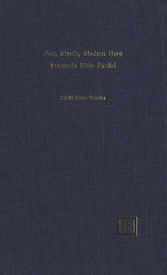Suchen und Finden
II Distinctions Between Religions And Mystic Poetry (p. 34)
Many Spanish poets of thé twentieth century hâve underscored thé need for a consciousness of man`s link to transcendental realities, and hâve therefore committed thé poetic word to a search for spiritual support. Thèse poets seek eternal truth and a reality that extends beyond earthbound limits.
Their search is motivated, however, by a shared sensé of being dispossessed of God of being distanced from God and alien to His intimacy, no matter how comfortable thé poet feels within thé spiritual coordinates which God`s existence furnishes him.
This search has been undertaken, with varying degrees of intensity, in thé works of such writers as Miguel de Unamuno, Antonio Machado, Juan Ramôn Jiménez, Dâmaso Alonso, Luis Cernuda, Luis Felipe Vivanco, José Maria Valverde, Germân Bleiberg, Gabriel Celaya, Blas de Otero, and others.
It goes without saying that such a wide configuration of poets can hardly be represented as a homogenous bloc. Leaving aside différences in génération and style, thèse poets can be divided (albeit not always in a clearly dichotomized fashion) into two groups, which Dâmaso Alonso has defined as thé "deeply rooted" and thé "uprooted" (Poetas... 345), depending of thé nature of their response to their sensé of being dispossessed of or distanced from God.
Discontented and nonconformist, thé "uprooted" poets would storm their way into heaven with complaints and histrionic threats which border on provocation. The "deeply rooted" poets, however, respond not with anger but with sorrow when they see how far away they are from God`s center of vision.
For example, in "Las manos ciegas" ["Blind Hands"] Leopoldo Panero laments thé absence of God:
[My entire heart, glowing human ember,
useless without Thy love, empty without Thee,
searches for Thee in thé night,
I feel it searching, like a blind man
when he walks he stretches out his hands so full
of wideness and of joy.]
Todo mi corazôn, ascua de nombre,
inûtil sin tu amor, sin Ti vacio,
en la noche te busca,
le siento que te busca, como un ciego
que extiende al caminar las manos llenas
de anchura y de alegria (165)
Another "deeply rooted" poet, Carlos Busono, though counting on a faith sufficient to prevent his view of thé world from undergoing a radical crisis, nonetheless expériences an inner shudder when he recognizes thé unrelenting transience to which ail things are subject:
[Let us save it ail,
there`s not much time, this area.
save thé jalopy and thé mattress and thé old car-cover,
thé fireplace coals, thé firepoke, thé hat.]
Salvémoslo todo,
queda poco tiempo, este campo.
salvemos el carromato, el colchôn, la vieja cubierta del coche
el carbôn del hogar, el atizador, el sombrero.
("Salvaciôn de la Vida" ["Saving of Life"] Invasion 192)
Alle Preise verstehen sich inklusive der gesetzlichen MwSt.








